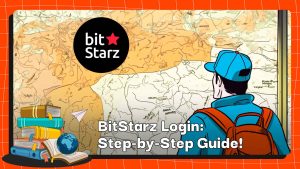Can DeSci DAOs Make A Breakthrough For The Science Economy?
Key Points:
- DeSci was born based on the current difficulties and obstacles of the scientific economy.
- With the power and application of blockchain, it can solve other problems.
- DeSci DAOs take advantage of decentralization to bring together the knowledge and expertise of scientists to optimize development.
The recent decade has shown that distributed ledger technology (DLT) and blockchain, as components of it, have enormous potential to alter and enhance the financial and technology sectors.
In an effort to enhance the contemporary world, an increasing number of entrepreneurs have used blockchain technologies, bitcoin, smart contracts, and decentralized autonomous organizations (DAOs).
After their clear gains, other sectors and efforts gradually started to leverage new technologies to profit from them and generate a wide range of DLT directions and use cases. One of them is the DeSci (decentralized science) movement.
To that aim, the decentralized science movement is developing new mechanisms to support, implement, and disseminate open research. The existing scientific system is filled with inefficiencies, rent-seeking activities, and poor transparency, all of which stifle innovation.
Around 50 DeSci initiatives have begun in the past year alone, and early-stage funding is taking note. These initiatives allow builders, investors, researchers, and community members to engage in public asset economic growth and continued development.
The current difficulties of science make DeSci appear
Decentralized science (DeSci) is still in its infancy, yet it is at the crossroads of two worldwide trends:
Attempts within the scientific community to alter how research is funded and information is disseminated.
Attempts to transfer ownership and value away from industry middlemen within the crypto-focused movement. So, precisely, what does DeSci entail?
The existing scientific research economy rewards prestige acquisition above openness and creativity. Rent-seeking overlords, misdirected reviewers, and duplicate gatekeepers must all be dealt with by researchers. Current scientific problems and barriers are readily visible.
Government funding or small, business-driven groups of policymakers are often used to support research. Both have an inherent bias toward those they finance. It’s a negative feedback cycle, with academics modifying tedious grant applications depending on which hypotheses they believe are most likely to be accepted, at the price of theories about which they are most enthusiastic. As a consequence, the variation in the research was considerably decreased.
Additionally, the lack of openness in data and methodology makes it difficult, if not impossible, for others to validate or expand on previous discoveries.
One problem impeding scientific progress was the need for submissions to be reviewed by a small panel of unpaid peers before being selected for publication. This may result in major publishing delays, prejudice towards rival ideas, and a lack of detail attention.
Conventional scientific publishers then slam scientists by charging them thousands of dollars in article processing costs and excessive reader subscription fees.
The DeSci movement seeks to improve scientific financing, liberate information from silos, reduce dependence on profit-hungry middlemen such as publishing conglomerates, and encourage cooperation across disciplines.
DeSci DAO attempt to use technologies such as blockchain and Web3 to tackle scientific difficulties such as financing, bottlenecks, access to research, and silos.
DeSci goes beyond the well-known open science movement, which promotes scientific study via online financing platforms, to concentrate on global concerns such as lifespan, mental health, and environmental difficulties.
Despite DeSci being founded in 2015, groups have been sprouting up at an increasing pace in the last year. The DeSci movement is currently in its early stages, with its guiding ideas, or rules, continually changing.
What problems do DeSci DAOs solve?
DeSci organizations, like other decentralized organizations, employ blockchain and Web3 technology to achieve their goals. In doing so, they concentrate on addressing three major difficulties confronting the scientific research community today. They include the ability to:
Collaboration on a larger scale
DAOs are seeking to reverse this tendency and give medical science Moore’s law trajectory (a growth in technical achievements at an exponential rate). The theory is that by employing such a decentralized organizational structure, scientists would be able to pool their knowledge and expertise within a worldwide community, hence fostering scientific advancements.
Use innovative financing mechanisms
DeSci groups may use technologies like NFTs and cryptocurrencies to crowdfund research, for example, via DeFi protocols or by monetizing IP NFTs, basically giving the DAO and its members decision-making authority.
Make the publication process easier
DeFi can offer publication storage and proof of existence via a blockchain, keeping research material secure permanently and ensuring that no matter how small a piece of data may seem later on, it is still there if it becomes more useful.
Increase the credibility of your study by verifying it
Research may be confirmed using the blockchain in the same way that transactions on the blockchain are manually vetted by the scientific community. Such systems exist to enable the development of peer technology reviews that are both transparent and dependable.
DeSci gets the backing of blockchain technology
All blockchain products and features, such as DeFi, NFTs, tokens, etc., can be supported by DeSci.
When scientists provide peer reviews for free, the academic publishing business gains enormously by serving as a middleman.
Tokens or NFTs might be used to motivate scientific communities to share, evaluate, and organize various forms of information into resources like smart manuscripts and article collections. This might pave the way for new kinds of information sharing, as well as speedy publication and evaluation.
As previously indicated, scientists and DAOs are presently experimenting with NFT and token launches to support research.
DeSci institutes may be an appealing alternative to conventional scientific education as academic institutions increasingly transfer their instruction online.
Open science has been chastised for the possibility of one huge commercial platform to someday own research. Several components of science, like peer review and reputation systems, might be regulated by independent, specialized communities in a DeSci ecosystem.
This would reduce the danger of single-platform dominance while also helping to future-proof research against quickly changing technology and unforeseen threats.
DeSci also allows communities to become the new”shareholders of scientific information, for example, via IP-NFTs controlled by DAOs. The created by such assets may subsequently be utilized to support the discovery of new knowledge, with the goal of creating self-sustaining scientific systems.
Conclusion
The majority of DeSci initiatives are still in the early phases. Individuals may, however, profit from contributions to public goods in a variety of ways that are now unexplored.
Communities can support the research that is most important to them, scientists may commercialize their processes more readily, and whole systems can be strengthened by defaulting to open and verified data standards. As a result, scientific discoveries may become more regular and lucrative, benefitting all DeSci economy participants.
DeSci DAOs’ emphasis and structure will become more clearly defined as they mature, and attainable objectives will be determined. But, before they can demonstrate their usefulness in altering how research is done, these organizations must demonstrate their validity and scientific quality while guaranteeing that their procedures lead to real end objectives rather than merely a collection of general principles.
DeSci initiatives span from completely theoretical concepts and small-scale technology experiments to more established players supporting university research and founding many DAOs of their own.
DISCLAIMER: The Information on this website is provided as general market commentary and does not constitute investment advice. We encourage you to do your own research before investing.
Join us to keep track of news: https://linktr.ee/coincu
Harold
Coincu News






















